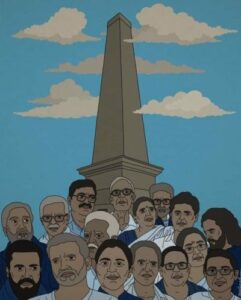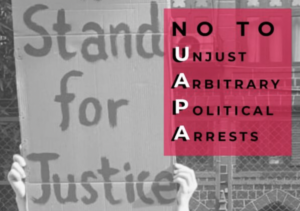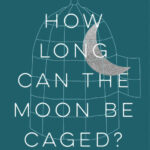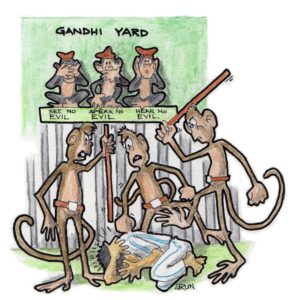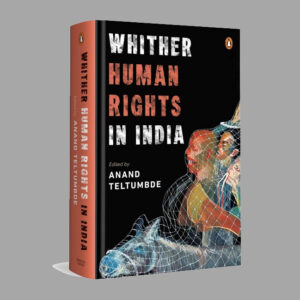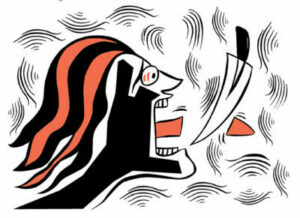
‘Controversy is best avoided, festival safety paramount’: Kala Ghoda director
13/02/2026
The Indian Express / by Heena Khandelwal
First response on dropping discussion involving Teltumbde
In her first response on the cancellation of a discussion involving activist Anand Teltumbde at the Kala Ghoda Arts Festival (KGAF) on the orders of the Mumbai Police, festival director Brinda Miller said she was unaware of the controversy until the police reached out to her.
Read more
‘Controversy best avoided’: Kala Ghoda festival director after Anand Teltumbde book event cancelled
13/02/2026
Scroll.in / by Scroll Staff
A book discussion at the Mumbai festival featuring the activist was scheduled for February 6 but was cancelled on the orders of the Mumbai Police.
A week after a book discussion at Mumbai’s Kala Ghoda Arts Festival featuring activist Anand Teltumbde was cancelled on police orders, the director of the festival said it was best to “avoid controversy and unnecessary sensationalism”, The Indian Express reported.
Read more
Will You Go With Anand Teltumbde?
05/02/2026
The Wire / by S. Anand
After his event in a Kala Ghoda event was cancelled, activist Anand Teltumbde discussed the Buddhist philosopher Nagarjuna with a friend, focusing on his explorations of presence and absence.
That Anand Teltumbde, the Annihilator, who lives in a small part of a very large building called Rajgruha in Mumbai, was going to attend the ongoing Kala Ghoda Arts Festival was not known to us at Navayana. Most of the world minus the minor elites of Mumbai and those plugged into lit fest circuits would not have known about this festival or this one small event within it. Then the state gets in on the act. Cancel, they say, and the organisers of KGAF, whose slogan tellingly is ‘ahead of the curve’, quickly oblige before apologising to Teltumbde and his fellow panellists with a ‘Hi all’ email. The show, as they say, must go on.
Read more
‘Cancel culture’: Discussion with activist Anand Teltumbde at Kala Ghoda festival scrapped amid backlash
05/02/2026
The Print / by Purva Chitnis
A book discussion scheduled Thursday featuring scholar and civil rights activist Anand Teltumbde at Mumbai’s famous Kala Ghoda festival was cancelled allegedly on orders of the Mumbai Police.
Scroll editor Naresh Fernandes was to moderate a discussion titled ‘Incarcerated: Tales from Behind Bars’ also featuring author-journalist Neeta Kolhatkar, who penned the book, ‘The Feared: Conversations with Eleven Political Prisoners,’ on 5 February.
Read more
Cops halt talk on Teltumbde’s book at KGAF
05/02/2026
Hindustan Times / by Vinay Dalvi
The event encompassed a discussion on activist and accused in the Elgar Parishad-Bhima Koregaon violence case Anand Teltumbde’s book ‘The Cell and the Soul: A Prison Memoir’
Mumbai police denied permission for a programme titled Incarcerated: Tales from Behind Bars, which was slated to be held on Thursday as part of the ongoing Kala Ghoda Arts Festival (KGAF), late on Tuesday night. The event encompassed a discussion on activist and accused in the Elgar Parishad-Bhima Koregaon violence case Anand Teltumbde’s book ‘The Cell and the Soul: A Prison Memoir’ and journalist Neeta Kolhatkar’s recently published work ‘The Feared: Conversations with Eleven Political Prisoners’, at the David Sassoon Library and Reading Room.
Read more
‘Ridiculous’: Anand Teltumbde Slams Police After Kala Ghoda Arts Festival Cancels Book Event
04/02/2026
The Wire / by The Wire Staff
Calling the police’s interference “ridiculous”, Teltumbde said that the development feels strange, especially when his book has been in the public domain for some time and public events around his books have been happening over the past many months.
Claiming that the Mumbai police have denied permission, the organisers of Mumbai’s well-known Kala Ghoda Arts Festival (KGAF) have cancelled a book discussion in which civil rights activist and academic Anand Teltumbde was scheduled to speak. The event, titled Incarcerated: Tales from Behind Bars, was meant to be held on Thursday evening. The cancellation was communicated through an email late evening on February 3.
Read more
Book Event On Undertrial Prisoners At Kala Ghoda Arts Festival Cancelled After Right-Wing Uproar
04/02/2026
Outlook India / by Priyanka Tupe
Organisers of the Kala Ghoda Arts Festival cancelled a panel discussion on incarceration and political prisoners late on February 3, citing police pressure after an uproar by right wing social media users. The event was to feature Anand Teltumbde, Neeta Kolhatkar, and Naresh Fernandes at Mumbai’s David Sassoon Library Garden.
‘Incarcerated: tales from behind bars’ an event part of the renowned Kala Ghoda festival in Mumbai has been cancelled by the organisers at midnight of February 3. Participants Anand Teltumbde, eminent writer and under trial prisoner of the Bhima Koregaon case, journalist and writer Neeta Kolhatkar and journalist Naresh Fernandes were among the panellists.
Read more
Anand Teltumbde book discussion dropped from Kala Ghoda Festival after online backlash, organisers cite police request
04/02/2026
The Indian Express / by Heena Khandelwal
Festival director calls decision “unforeseen and unfortunate”; Police sources cite ‘inappropriate’ use of govt, police banner with guest who had been arrested in the past.
A book discussion featuring activist and academic Anand Teltumbde at the Kala Ghoda Arts Festival (KGAF) was cancelled on Tuesday night, allegedly following directions from the Mumbai Police, soon after details of the event were made public.
Read more
▪ The Cell and the Soul – A Prison Memoir

Author: Anand Teltumbde
Publishing Date: Sep 2025
Publisher: Bloomsbury India
Pages: 256
Read more/order
Also read:
▪Book Launch | ‘Never Imagined I’d Be Qualified For Arrest, Let Alone Write a Prison Memoir’: Anand Teltumbde (The Wire / Nov 2025)
▪Bombay HC refuses to allow Bhima Koregaon accused Anand Teltumbde to travel abroad for lectures (Scroll.in / Oct 2025)
▪ Maharashtra Special Public Security Act, Pre-Emptive Criminalisation And Indefinite Surveillance (Outlook | by Anand Teltumbde | Aug 2025)
▪ The Feared – Conversations with Eleven Political Prisoners

Author: Neeta Kolhatkar
Publishing Date: Dec 2024
Publisher: S&S India
Pages: 272
Read more/order
▪ Maharashtra: Activists, Lawyers Added to ‘Union War Book’, Listed as ‘Enemies of the State’ (The Wire / Jul 2021)


